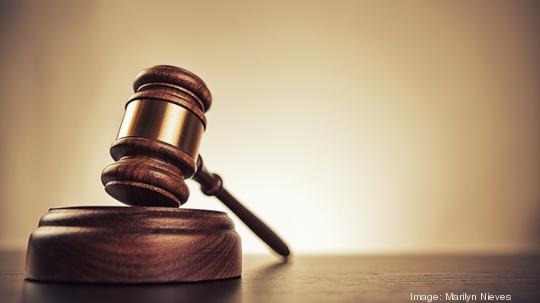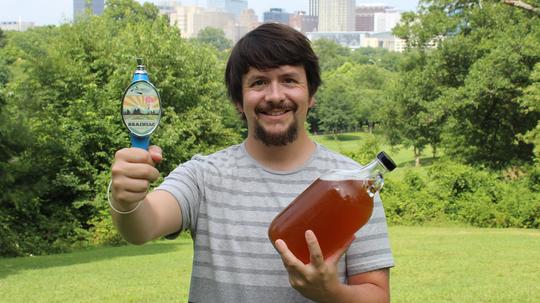
A Triangle kombucha startup’s latest challenge? A lawsuit claiming it’s too boozy for underage consumers.
Multiple plaintiffs have teamed up to propose a class-action complaint against Cary-based kombucha brand Tribucha, alleging it contains double the alcohol that's allowed, and that it’s breaking federal and state law by not classifying its fermented teas as alcoholic beverages.
Tribucha did not immediately return a request to comment on the lawsuit.
Tribucha was founded by tech entrepreneur Adrian Larrea and Jon York. The friends pooled their savings, taking a $30,000 bet that the product would take off. And they scored outside backers along the way, including Cofounders Capital CEO David Gardner, who sits on the company’s board. Little by little, the firm found its footing, scoring space on shelves at grocers such as Publix and Whole Foods (NASDAQ: AMZN). Consumers were buying into the pucker-worthy flavor that promised a “kombucha face” with the first vinegary sip.

The lawsuit claims the drinks have as much alcohol as a standard beer — and are dangerous to unknowing consumers.
Tennessee plaintiff Sean Burke, for example, claims in the suit that, despite being underage, he was able to buy the drink and “felt the effects of alcohol.”
“Mr. Burke was unaware that he was experiencing the effects of alcohol, however, because the products did not bear the proper warnings and disclosures,” the lawsuit says. “Mr. Burke would not have purchased the products at the time had he known that they contained significant levels of alcohol, especially considering that Mr. Burke was underage, and it was illegal for him to purchase alcoholic beverages.”
Kombucha is a drink made of fermented tea.
The lawsuit claims a test in a certified laboratory found Tribucha contains alcohol “significantly above” 0.5%, and that it continues to ferment on the shelves. For reference, regular beer typically contains 5% alcohol content according to the National Institute on Alcohol Abuse and Alcoholism.
“Under federal law, Defendant cannot turn a blind eye … considering that continued fermentation and high alcohol content is an industry-wide problem,” the lawsuit states, going on to claim that Tribucha is violating federal and state law by not containing a warning on its labels.
Selling the products as non-alcoholic beverages is “misleading,” plaintiffs allege. Consumers “are led to believe that the products are safe to consume when driving a car, operating machinery, and taking with potentially a deadly cocktail of incompatible medications,” the lawsuit says.
The lawsuit was filed by attorney Daniel Bryson of Milberg Coleman Bryson Phillips Grossman PLLC.
Part of a pattern
Lawsuits filed over kombucha are not unique. In 2019, for example, kombucha-maker Health-Ade agreed to pay $4 million to settle a pair of lawsuits over alleged inconsistencies between the sugar and alcohol levels on the label and in the beverage itself.
Last year, a consumer class-action complaint was proposed in Illinois over Fermented Sciences’ alcoholic kombucha, alleging that the firm had deceived consumers about the drink’s health benefits.
Tribucha recently forayed outside of fermented teas and into using a proprietary probiotic in soda.
Last year, Larrea estimated the firm, which had 20 employees, would do more than $2 million in revenue.



